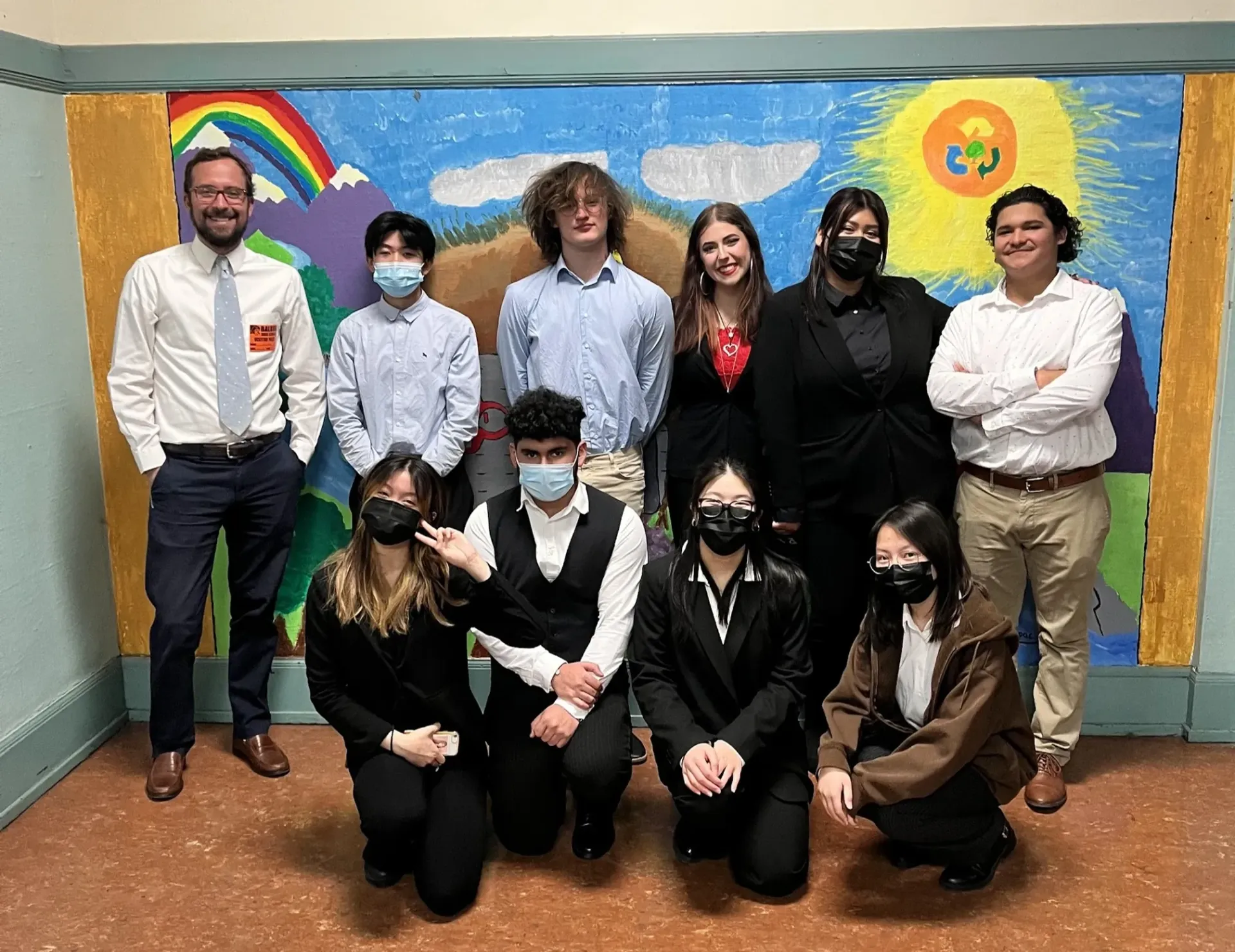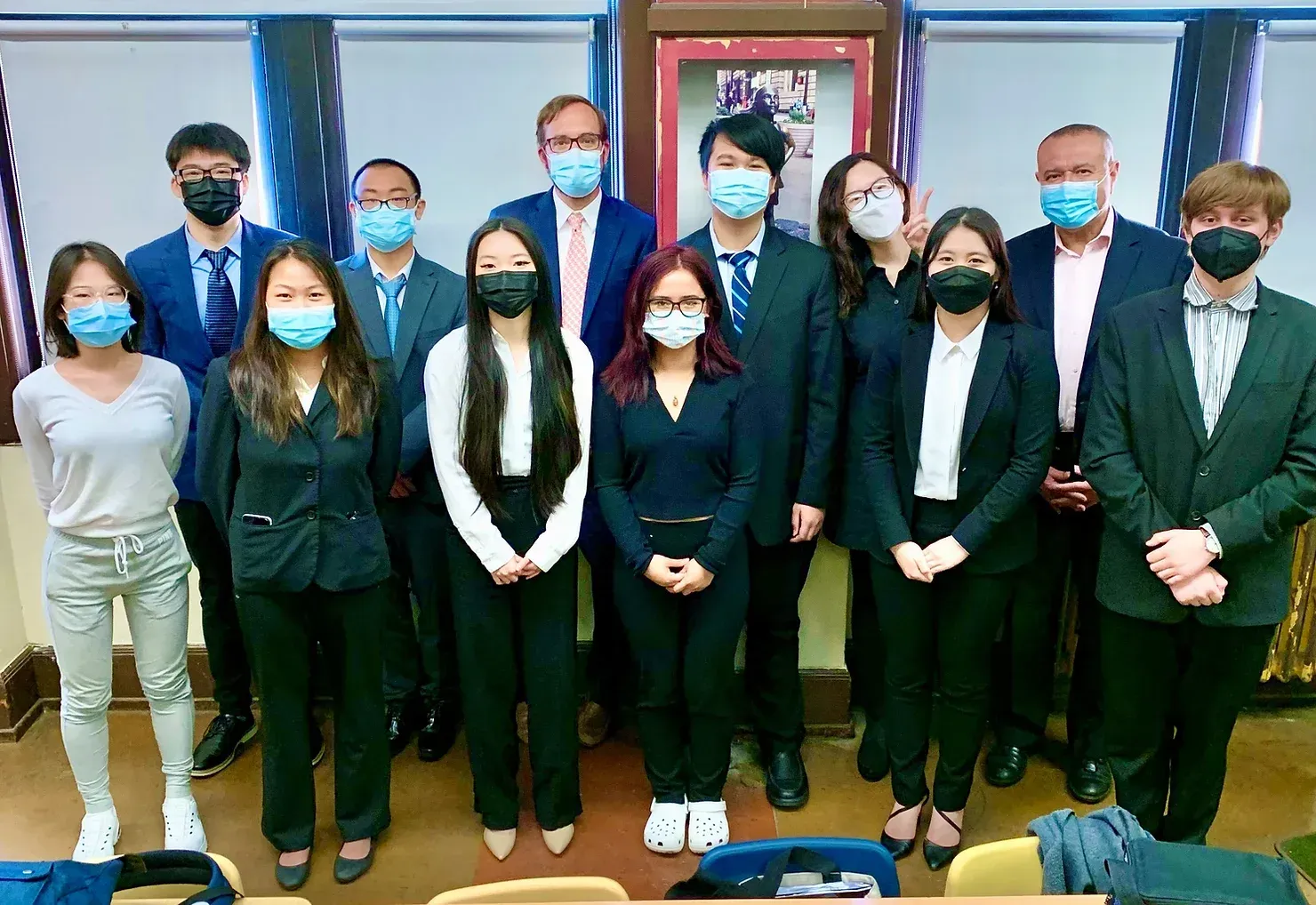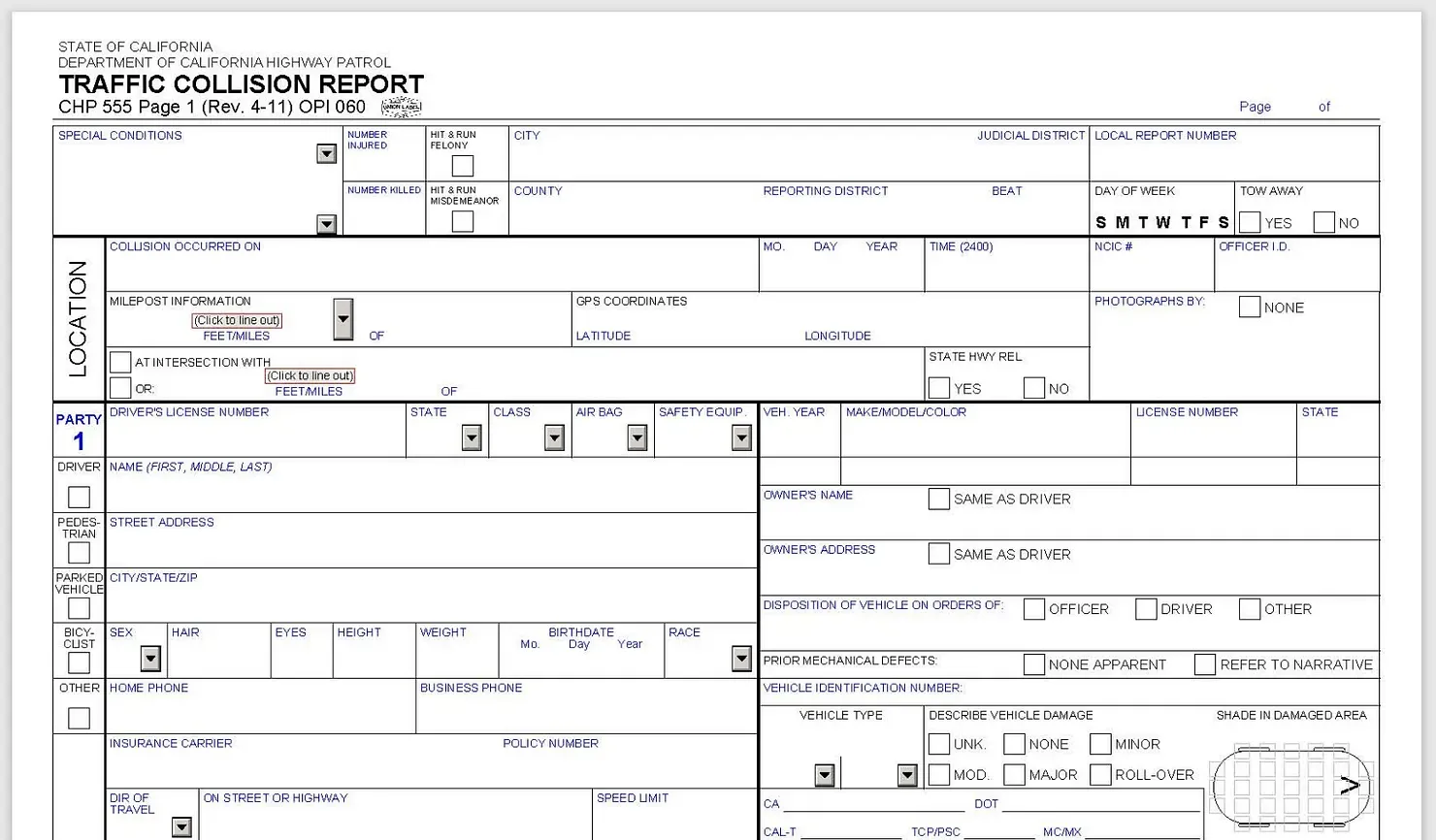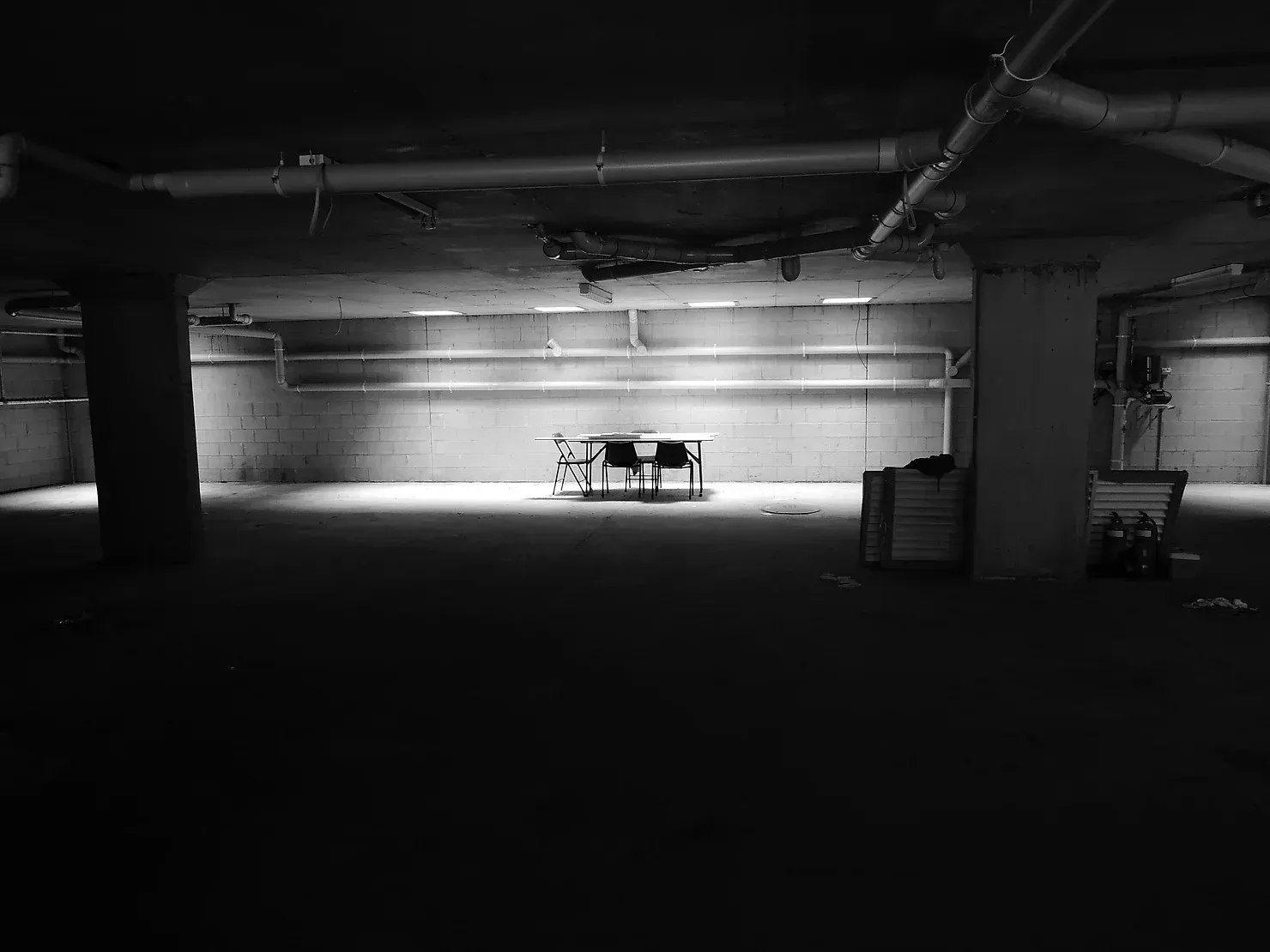By Jonathan Harriman
•
August 10, 2022
Traffic collision reports, also known as TCR are one of the most vital documents to have when in a crash. Continue reading to understand the significance of these. Who: When involved in a collision, you should call your local police to request that they investigate and prepare a traffic collision report. As part of their investigation, they will come out to the scene of the crash, take statements from the parties involved and any witnesses, take measurements, prepare diagrams, and ultimately determine who was at fault for the crash. Copies of the TCR may be viewed by the parties involved (or their parents if the party is a minor), vehicle owners, insurance companies, and attorneys. What: Formally called the Traffic Collision Report (CHP 555) in California, this document serves as an essential piece of evidence for us when evaluating your case. The first page consists of the location of the crash, the identity of the parties involved, and details about the vehicles they were driving. The second page is comprised of situational details including the weather conditions, lighting issues, seating position of driver and passengers, if airbags were deployed, if anyone was ejected from the vehicle, if there was evidence of inattention such as cell phones, and whether alcohol or drugs were a factor. The third page generally contains details about any injured parties and statements from the parties about what led to the crash. Often, the investigating officer prepares a factual diagram depicting the roadway, the area of impact (AOI), and the location of the vehicles after the crash. Where: At the crash site, the police will be able to ask questions and survey the area to build a TCR that best captures the scene. When: Just after the crash, call the police so they can investigator and document of facts. Remember to call 911 if you have a serious injury or to advocate for yourself if you are in need of immediate medical attention. Why: The TCR doesn’t just document the details of a collision, rather it aids in your case. In order for an attorney to prove liability - usually in the form of negligence - the TCR is vital. So, if you are involved in a crash, take your time to provide as many facts as possible to ensure the investigating officer will obtain the most accurate information possible. This includes the speed of the vehicles involved, any sudden turns or lane changes, your injuries, and all other details. The more information we have to work with the better, allowing you ultimate closure in results. This is not legal advice. You should always contact a lawyer to discuss your specific case. Consultations at Harriman Law are free.











